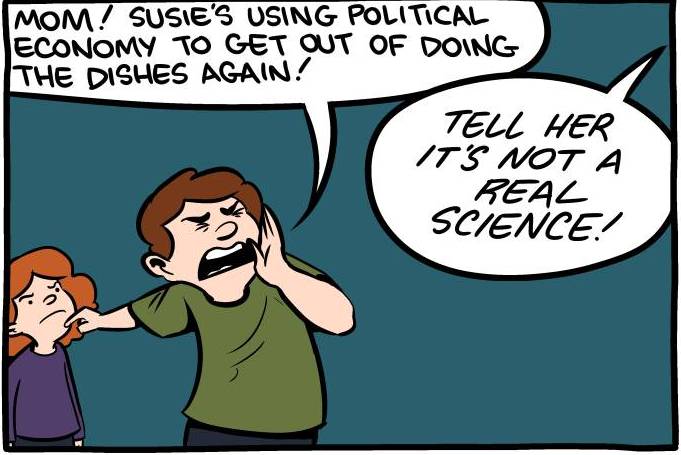
I picked up a recent New Yorker and was astonished to find a lengthy review article on the social science work measuring the polarization of American politics.
The piece features work by Keith Poole and Howard Rosenthal, who (along with co-author Nolan McCarty) have created a cottage industry by using roll-call votes to map politician preferences (see the very cool VoteView page for many of the gory details).
I have been following this work since I read their chapter in Goldin & Libecap’s edited volume, The Regulated Economy: A Historical Approach to Political Economy, back in grad school, and I have Political Bubbles in the queue on my “to read” shelf. Yum.
Of course, aside from the New Yorker piece, these are a bit heady for holiday reading, so perhaps just consult SMBC for your political economy needs.